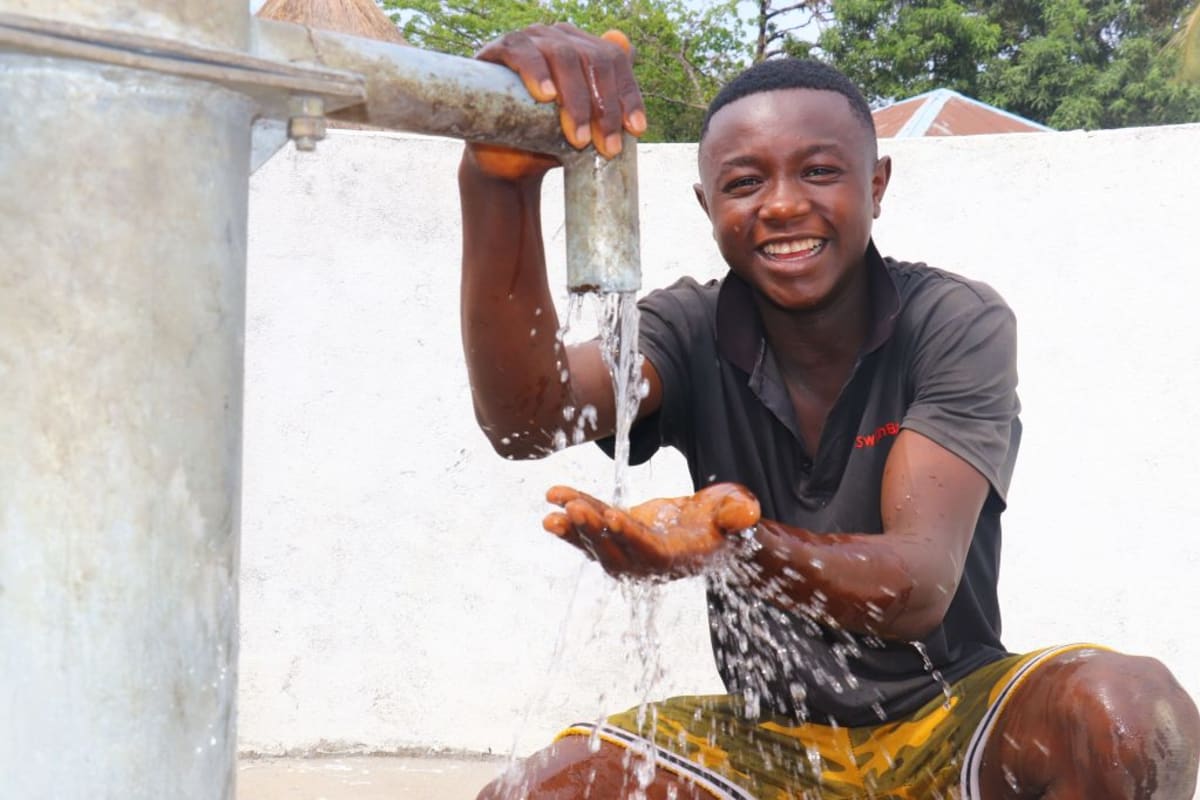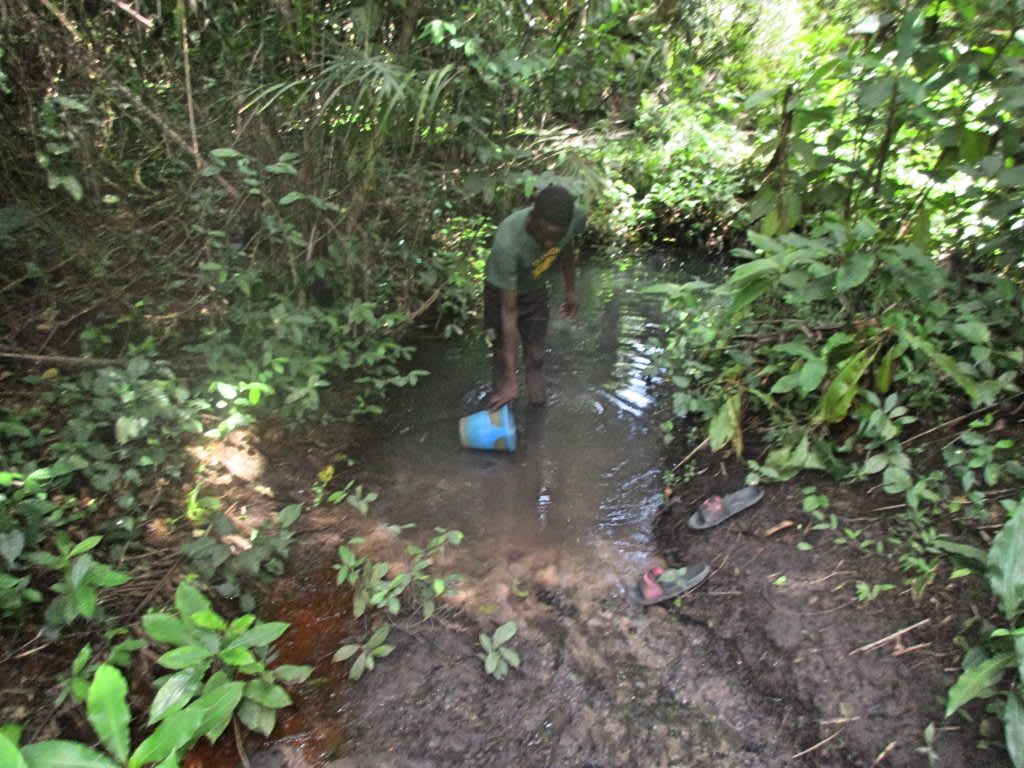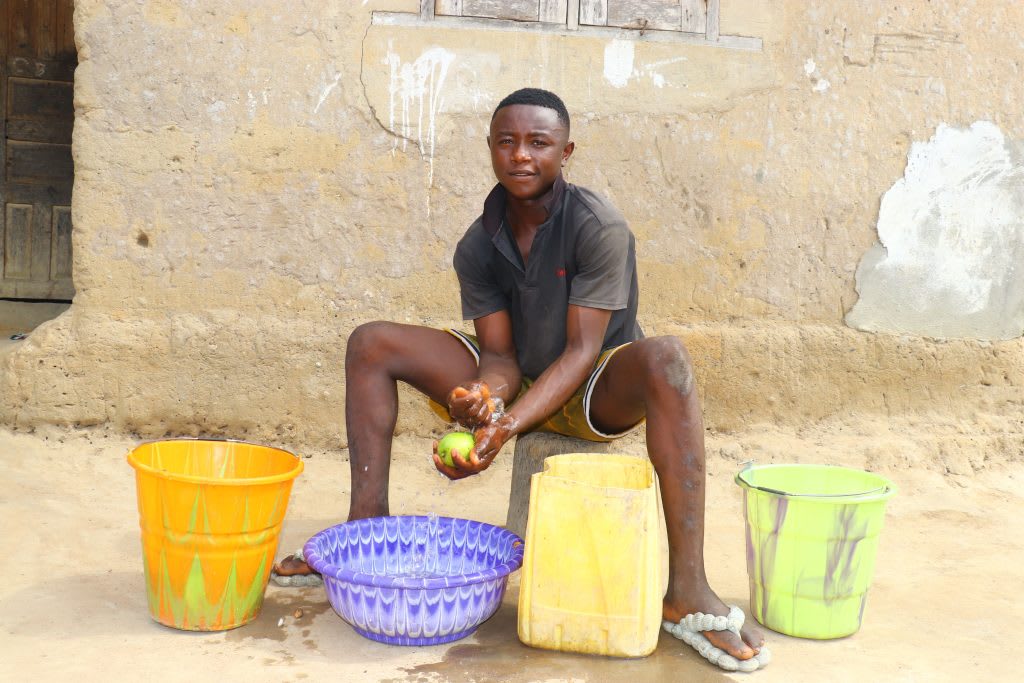The 100 people of Morie Bangura Community struggle to access sufficient water. Their only community source is a swamp they must travel a quarter of a mile to reach. The road is sloped and slippery, and the water leaves much to be desired.
"The water crisis in this community is affecting everyone daily. One of the people in the community affected by the water crisis is the lactating mothers. These women will not be able to fetch enough water to wash the baby's diaper. Even for the water to form a lather with soap will be difficult. The water shortage in the community also affects the daily activities of families. The women will undergo a lot of difficulties when they want to prepare food for the family due to the water crisis," said Field Officer Julius Sesay.
Women and girls are disproportionally affected by the water crisis. To be female in this community means your entire life revolves around collecting water for your family. Almost all their time is consumed by collecting meager amounts of unclean water. To make matters worse, they often fear the journey to the swamp.

"Poisonous reptiles like snakes can easily hide in the bush without their notice. Some of them have been attacked by snakes. As a result, they are often terrified when going to the swamp to fetch water. Some teenage girls are equally afraid to go to the swamp alone. They believe the young boys will hang around the water point to rape or harm them. Therefore, they always prefer to go to the swamp as a group," shared Julius.
27-year-old Adama Kamara, seen below at the swamp, said, "I was attacked by a snake when going to the swamp. From that time, I became terrified when going to the swamp. I hardly go to the swamp alone unless someone accompanies me."

Adama continued to share the hardship. "The thing that makes me suffer more is when the water in the swamp gets dry. The duration in which the swamp gets dry is too long, from March into June. This is affecting even my agricultural work. Failing to water the plants on time affects the plants from growing well. There has been a decline in the yield of the plants."
"The seasonality of the water point makes most of the women not fetch water. Most of the time, these women will be deprived of fetching water from other communities simply because they are not residing in that community. That is why these women will end up returning home with no water. This makes the entire family suffer because water will not be available to do anything. Life without access to clean and safe drinking water is miserable," continued Julius.
If the swamp is dry, community members must travel to other communities to seek water. This is often not well-received by those communities.
Adama said, "Most times, I will not be able to fetch enough water from other communities because I am not a [part of] that community. They will treat me [as if I'm] less important. I will return home with less water that cannot even serve us for a day."
Children also bear the burden of the water crisis in this community. All the time spent collecting or searching for water steals from their future. They can't fully invest in their educations, their first ticket out of poverty.

15-year-old Sinneh K., seen above, shared, "The water situation in the community is affecting me greatly. Ever since I was a child to this age, we have been fetching water from the swamp. The most difficult thing I face is when the water in the swamp runs dry. This makes me find it very difficult to fetch water. Even fetching water for drinking becomes very difficult. There are times I will still take the risk and fetch water."
The story that everyone can tell in this community is their water crisis takes away from every aspect of life.
Installing a well in the Morie Bangura Community will allow them to prioritize other essential life tasks. Adama will spend less time and energy traveling and collecting water so she can abundantly care for herself and her family. Sinneh can expend less energy finding water and more time invested in his future. When children can dream of a brighter tomorrow, it enhances the community as a whole.
The Proposed Solution, Determined Together...
At The Water Project, everyone has a part in conversations and solutions. We operate in transparency, believing it benefits everyone. We expect reliability from one another as well as our water solutions. Everyone involved makes this possible through hard work and dedication.
In a joint discovery process, community members determine their most advantageous water solution alongside our technical experts. Read more specifics about this solution on the What We're Building tab of this project page. Then, community members lend their support by collecting needed construction materials (sometimes for months ahead of time!), providing labor alongside our artisans, sheltering and feeding the builders, and supplying additional resources.
Water Access for Everyone
This water project is one piece in a large puzzle. In Kenya, Sierra Leone, and Uganda, we're working toward complete coverage of reliable, maintained water sources that guarantee public access now and in the future within a 30-minute round trip for each community, household, school, and health center. One day, we hope to report that this has been achieved!
Training on Health, Hygiene & More
With the community's input, we've identified topics where training will increase positive health outcomes at personal, household, and community levels. We'll coordinate with them to find the best training date. Some examples of what we train communities on are:
- Improved hygiene, health, and sanitation habits
- Safe water handling, storage & treatment
- Disease prevention and proper handwashing
- Income-generation
- Community leadership, governance, & election of a water committee
- Operation and maintenance of the water point





 Borehole Well and Hand Pump
Borehole Well and Hand Pump
 Rehabilitation Project
Rehabilitation Project

























